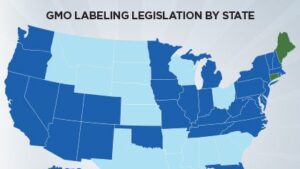Genetically modified organisms (GMOs) offer huge opportunity in agriculture, but they bring with them significant regulatory, compliance and testing challenges. To meet marketability standards, support international trade, and keep consumers on-side, agriculture needs efficient, cost-effective, scalable methods for GMO detection in food, feed and seeds. Luckily, there’s a new type of genomics technology available that offers exactly that.
If you’ve got your ear to the ground about what’s new and exciting in genomic technologies, you’ll have heard of the Biomark™ X9 System for high-throughput genomics, which delivers comprehensive sample profiling for PCR and genotyping by sequencing (GBS) studies with minimal operator contribution. That same system has the potential to revolutionize GMO detection via its unique amplicon-based sequencing approach.
This approach offers several key advantages over traditional methods like qPCR:
- Highly multiplexed: the BioMark X9 can analyze a large number of GMO targets simultaneously, saving time and resources compared to single target methods.
- Increased sensitivity: the Biomark X9 can detect GMOs present at very low levels, even in complex mixtures.
- Improved specificity: the BioMark X9 reduces the risk of false positives by targeting specific sequences unique to GMOs.
- Broader applicability: The BioMark X9 can identify a wider range of GMO events, including those not yet documented in reference databases.
- Streamlined workflow: The BioMark X9 offers automated library preparation and sequencing for increased efficiency.
This technology has the potential to be a game-changer for various stakeholders. Most obviously, the technology would give regulatory agencies enhanced capacity for monitoring and enforcement of GMO regulations. For food, feed and seed producers, it would ensure the accuracy and transparency of their labeling practices. And, at the far other end of the agricultural value chain, it would also benefit consumers, giving them greater confidence in the information provided on food labels.
Intrigued? Read more about how this approach works here, check out this website, or contact us at education.team@standardbio.com.









